musings once entitled, “a therapist reflects on the whiplash of finally having relationships with my parents i am grateful for, despite it all”
I would like to start this off by saying I am a very different person than I thought that I would be.
I’m having rooibos tea1.
When I was little and assumed I was a girl, I also assumed I would be curated and beautiful, always. I did not dream of men and marriage but a house of my own, well-kept and gracefully thrown together, like the living room of some suburban house mom that did drugs in her twenties. I thought I would be some kind of charming, intentional, controlled chaos: alluring and enrapturing and not necessarily complex. I certainly did not dream of ending up human and disappointing. I assumed, like most little almost-girls do, that the magic of adulthood would fall upon me like fairy dust (?) and I would be made into Woman.
Woman™ (noun):
1. endlessly gorgeous, divinely entertaining, eternally hopeful.
2. Like my mom.
As it turns out, I am remarkably and unmistakably thrown together, charm sold separately. Just like I wanted, I am so much like my mother it hurts. I am the carbon copy of my father, even down to the shoddy (and remarkable) life subplots as a quasi-adult, despite him praying to Jehovah God every day and pleading I end up nothing like him. “Let her be good,” he said. I became a stripper like… six months after he and I took picture. Lmfao.2
In this chapter of my life, these loosely bound together things called the mid-twenties, I find myself meeting my parents yet again. They feel like old friends, the way they’re covered in nostalgia. My childhood self tells me thank you for never giving up on them; my childhood self tells me they are still frightened of when they do not understand me. I am still (always) frightened of the ways they do not understand me. I have expanded my definitions of love: no understanding necessary. To know me is know me, and many people do that! ; Loving is an entirely different story. There are only so many people in this world that know the exact shape and size of the grief I carry. I am beyond fortunate to still have them in intimacy.
And so much of my grief looks just like them. The first time I tasted grief, the first time my child mind had some semblance of what’s been lost, my whole world still fit in the palms of my dad’s hands. I didn’t know how long a life was when I was child. I couldn’t have known. The cost of premature death has no currency or tenure in a child state because all you know is that the world is short and fleeting. I knew that it happened to us, that death hung all around us all the time, that it was heavy and thick some days but not necessarily bad. I knew was that life was precious and life ended and those two items were intertwined and blooming together.
Now I know how long a day is. I have a consciousness that can stretch outside my heart and hands. I know enough to know a bit about what’s been lost, enough to feel it on my chest every day, my most favorite tumor, and enough to know that my grief will be bigger than me the rest of my life. Two steps ahead. Grief eats me alive; she savors and smacks on my flesh. I know that I can grieve a person while they’re still alive. I will share with you the little ways I’ve watched my love for my parents die and die and bloom again.
I did not (and could not) account for the death of realizing my parents were shitty people.
It was a quickness that took me wholly by surprise. Waves of bile overcame me when I went to college and my body caught up with myself, and I began to actually remember the ways I had been mistreated. When I was around people with functional families and realized they exist outside of sitcoms. That my plucky white peers were that way because they sincerely had relationships with their parents weren’t a constant source of instability, fear, and trauma. That there were ways, layered ways, intimate ways I was scarred, or changed, or permanently different at their hand and word. That other people (people I knew now! People that were not fictional!!) had parents they could just… call and talk to, and I had to say a prayer and eat a meal before I could think of making myself dizzy like that. I learned that if I talk to my dad before a final I’ll fail the test. I learned that if I take a call from my mother before bed I shouldn’t expect to sleep for another one or two hours. Complex trauma, my first therapist said. So they were not loving, I breathed back. They were not even good.
Oh.
The grief of realizing that I was a shitty person was similarly difficult.
Horror at my own hands when I treated my loved ones, my friends, myself in the same ways my parents did. When I snapped at a friend in exhaustion and heard my father. When I soaked someone in guilt and saw the hand of my mother. In the same ways I told myself I would never be, there I was. Completely and unmistakably their child, good and bad. This was bitter and disappointing and not at all surprising. No matter how long I pretend or how long my arms or how long the distance, their blood grounds me to this earth. I died a quick death, one processed in three to five business days. This is the death I die every time I blink and see them where I don’t expect to. Oh, I disappeared because I felt like a disappointment again. Die the death and begin again. And then the next time I called them on the phone, half the country away, I listen more than I did the time before.
A third king of death, one that came and went with the silence of an early dawn: maybe there’s no such thing as a bad and a good person.
Maybe my parents were just… people. They sent me down this river in a basket, crossed their fingers, and prayed I would turn out better than them. Prayed over me I would land safe on Canaan’s side. When I finally awoke and realized I was alone, I could not believe they left me here. They just… left me here to fend for myself. A baby! I had every right to be outraged. I needed them and here I was, a baby in a basket alone. Now I am on this other side, through both hell and high-water, and I have come back for them, I never realized how much stuff they were carrying down this riverbank. Their loads are so heavy. Oh. It’s wonder they sent me away.
I am drifting upward like a cloud in my twenties and watching the childhood love I had for my parents germinate, root, bloom in the hardiest of conditions, die a slow and strangled death, lay barren, and then begin again— all from my space above. I really can only love them in the way a child does: fool-hardy and frost-hardy and endlessly hopeless. The pain of watching the wide-eyed faith I had in my caretakers fade slowly is eviscerating every time ; and now… unsurprising. It is not pain I can brace for, no matter how familiar the pain becomes. Grief is new every time when they’re living, breathing beings. Grief runs in the living, breathing time that they do. Even recently— like just days ago!— I was faced with another simple truth. It must have been hard to have your mom wrong you in that way growing up, said a loved one. And I leapt to defend her before I even registered that the critique was… right. She gave me the apology my mom never will upon my mother’s behalf and I have to be humble enough to take it. Oh my goodness, it hurts every time. What do you mean that was pain I was feeling? [a flashback to the many years I felt nothing at all and thought, “other people have emotions every day? They can feel every day?”] right. Fuck. It’s okay to have your feelings hurt by your parents. Breathe. Fuck.
Being self-aware feels like the… worst archeological dig of my life.
I keep finding fossilized heartbreaks: all these small fears I did not know I possessed until I brought them to the surface light and watched them fade away. I did not know my body kept myself so profoundly. I have a chest like sedimentary rock; colors bleeding together, pressed and curved together, forever, nothing forgotten to erosion or time.
I have, now, also become an adult that fails my childhood self. I promised myself I would never (never) leave me and have lived to see how inevitable this circumstance was. To love like a child is to assume people cannot and will not fail you. To love in fullness is to accept their failure as inevitable and make your love new again, make it a little more fool-hard and a tad more frost-hardy so. I do not plant my most delicate flowers in the garden beds I keep for my parents; however, I am my own gardener. I must learn to handle my seedlings with sweet, easy touches. Like warm summer breezes. Think Chicago in July: just soft like a breath. I cannot protect me from myself, so I will make sure I don’t have to. I cannot protect me from my self or my hands or my words, so I will make sure I will never have to. Even in ways I tried to be loving, I ended up treating myself just like my parents did. And we are all sorry. And we will all begin again.
To love like a child is to assume people cannot and will not fail you.
I also have to love myself like my own child: praying over her constantly, leaving her to toddle her steps into a world and trust she can set herself on fire if need be.
I think then, to love like a parent is to assume, desperately, that I will always be able to keep her safe. Including sending her away to keep her safe from me.
A love letter to my seventeen year old self, entitled:
on finding you again, asleep on the Nile
written in the summer of 2022 | going sober3
Here I am again, high on my porch.
I feel like I’ve been running in the exact opposite direction of everything worthwhile. It is the middle of the night. I have slept through everything good about my day. I feel my body resetting like a clock. My soil turns over. I am writing again.
I remember when, before therapy, before Friends, i came to you-- to me, myself-- every day, every spare breath I had was your own. If there was no one to keep and collect you I would never ever spell us. Never. Not a drop.
Now, beloved, here you stand agape at me with my hand in so many people’s pots. You shed like a cloak. The way you and your friends, you and your folk have wrapped around one another-- you don’t fear leaving a jacket at their house. It will find itself back to you in time or sink well into a home of new love. The intimacy of a lost jacket is sweet. It has made me better. I am better at speaking now, better at remembering to call. Better at seeing and hearing and feeling myself, feeling like myself, around them. Harmonious, even, around them. I spend less time by myself.
Altogether, this was a good thing. In my twenty-twenty I wrote little, save a refrain: my grief spills everywhere. I could not collect myself. I felt like I had failed you and so I did not want to come look you in the eye. It hurt to be away from you and I thought I deserved that. I thought you would think so too.
You were right to be scared, by the way. You are just like your parents. I couldn’t see how either, until other people could see and see and see me. In my betterment, for the worse, I have treated you in ways that make me understand why they sent me before them, alone, so they would fend off whatever chased behind me, so they could run before me and greet me at the finish line. I don’t regret the ways I’ve kept you safe. I am sad at how much I missed and I am sad at how much was lost to the blank haze of memory but you were sleeping. I didn’t want to wake you.
I am sorry to have run from you. This is the weight of grief I knew would crush you. It was not fair; it was not fair; I am happy to have you now. Now, we know enough about what we deserve and how long a life is to feel the weight of premature death in the flesh. How much death takes. The work of dying, of gargling grief, of choosing whether to decay pearly and white and soft or let it kill you brightly. I am encapsulated with so many different kinds of weight. I just want to sink peacefully into the earth alive enough to feel the humus cool my skin.
I will not tell you I regret the hedonism.
Instead, but instead. What I will say is that I, Jochebed, promised you away to a future that would be soft enough to hold you close, so I bundled you and I placed you in the river bed and I ran, I ran night into day, me, I, Miriam, I ran alongside you, across the delta, like a melody, ran until my own legs raised their might against me and when I could not run I screamed until the wind carried me until the breeze and wheeze of my own chest beat me until there was no air up there anymore and I, having lost you, careened back down to earth, tumbling, knocked around until I was soft enough to only fall, whipped into being easy, floating thing, a feather the Lord’s hum, until I, set back unto the earth as Bitiah all lotioned and perfumed and softened, opened my eyes and remembered you just as you awoke and cried. I remember being so marveled to find you had survived the crocodiles of the river by yourself so beautifully. Just a baby.
I see you as myself as if in reflection. I expected this moment of collection, the grand reunion, to see me returned to myself, to see the best of me sent down that river and received beautifully, to see me reunited in the beautifully-swaddled body of the Pharaoh’s Daughter. Instead the conscious narrator here at the end of this letter is me in Seventeen, myself, the unnamed baby sent adrift and now grown up, regarding me, you, grown and soft, looking at the Pharaoh’s Daughter with relief and some contempt. You hold me in your arms and coo and I, I you, you we look upon each other and think, “I never wanted to run. I never wanted to run from myself and leave me alone to face the world. No matter the battles, I would have fought them all if it meant you never left me. Why did you leave me here?” And we have always known this. There you are, seventeen, an infant, arriving having learned of this world by way of meandering and happenstance, and here I am softer from all the running, the escapism of flying. I did not come to you in ink ; there is so much I cannot remember. So much of us is lost.
I want you to know you have gotten your wish. As I write this, I am still falling from the sky. Seasoned like Icarus. I have decided to let grief grease us as we burn alive4.
And I know you’re at peace. I know this has always been your ethos, your ars poetica. I know that and I love you for it. I just thought I could protect you; you’re just so young to be a martyr. And I wanted you to know, even if it was for a moment, what it would be like to fly weightless. To float.
Love and love,
NGIB, called Ismatu (finally)
Jazz of the episode:
Cicada Season x Fuubutsushi
Manhattan x BLOSSOM DEARIE
Melancholia x Wynton Marsalis
The Single Petal Of A Rose x Ben Webster
You Go To My Head x Frank Sinatra
Michelle x Yusuf Lateef
Easy Living x Clifford Brown
Mans acted so surprised that he raised a hustler when he himself was [redacted]. Act like you know.
drifting towards sober. Falling sober. Crashing into sober. Etc.
Me, in present, whispering: the grief is burning us alive.

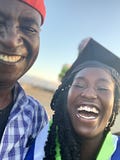
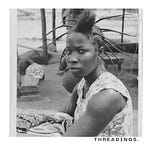



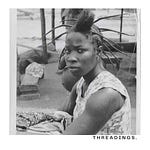

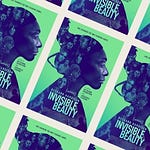


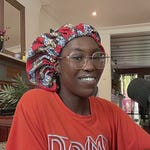
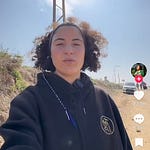
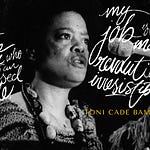
21| on loving my parents again and again (read: on learning to love myself)